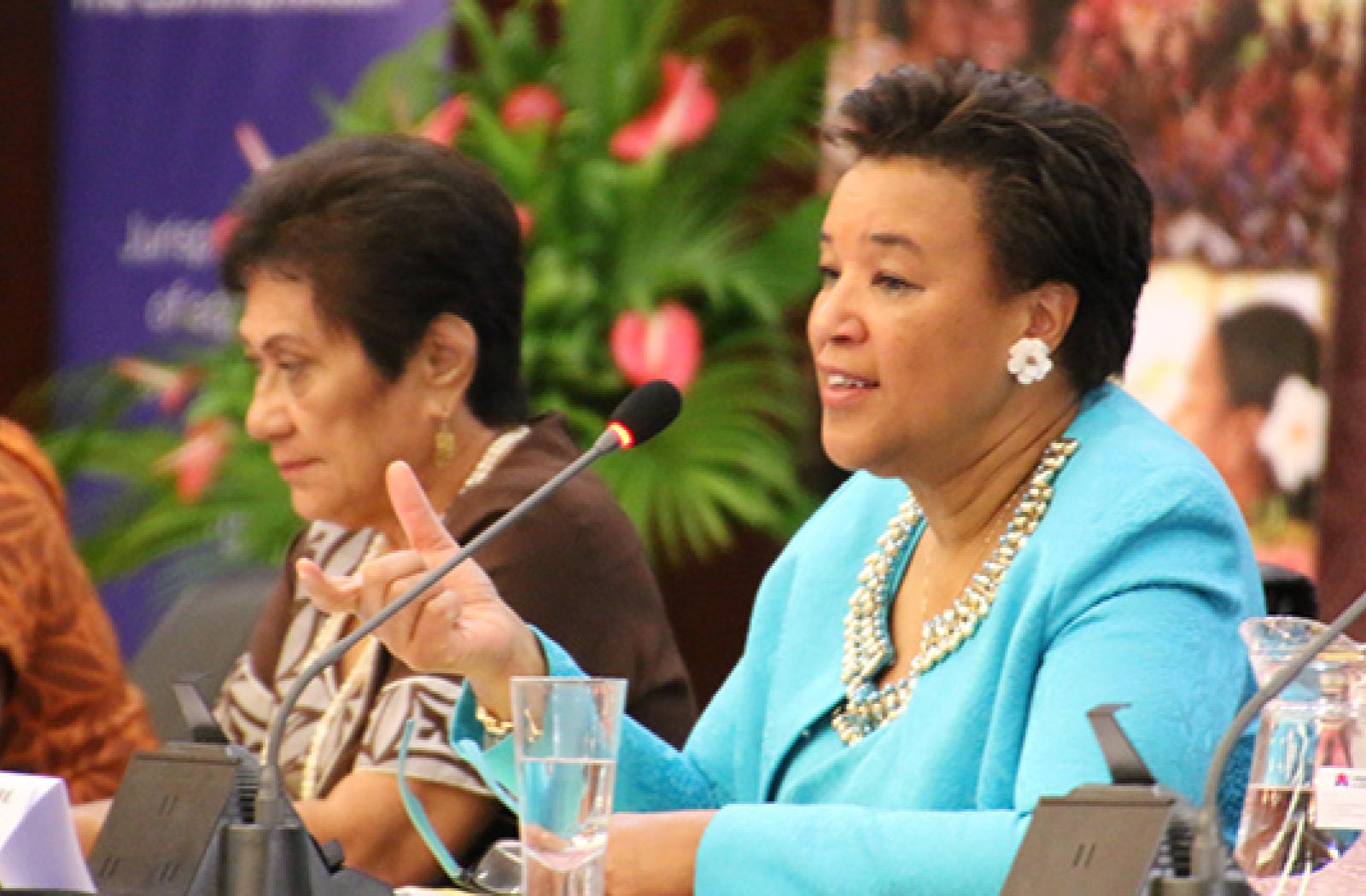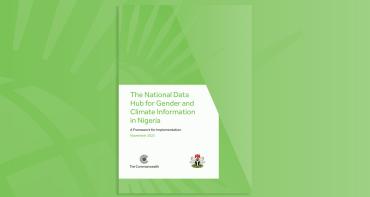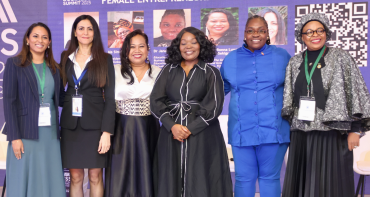This week, Commonwealth governments and leading campaigners will form an alliance to deliver on the promise of gender equality and end violence against women and girls, including achieving justice for women in the courts. One in three women worldwide is a victim of domestic violence, and it is the greatest cause of death in women and girls.

The first ever female Secretary-General of the Commonwealth, Patricia Scotland, is convening the 11th Commonwealth Women’s Affairs Ministerial Meeting, hosted in Apia by the Government of Samoa
Speaking on the eve of the meeting, the Secretary-General said, “We are bringing together women leaders and human rights campaigners from across the Commonwealth to celebrate women’s achievements and, ultimately, seek solutions to overcome the obstacles that squander women’s potential.
“By better empowering women, the world can benefit from their talents, drive and passions that go so underutilised. Our Commonwealth charter and many of the Sustainable Development Goals (SDGs) recognise women as dynamic forces for achieving lasting change and implementing sustainable solutions. Through equality, we can all work together to achieve our shared goals."
It is only the second time that the Pacific has hosted the Commonwealth Women’s Affairs Ministerial Meeting, and comes as the region lags far behind others for its proportion of elected female leaders.
Only one of the 11 Pacific Island countries has achieved the 30 per cent target for female cabinet ministers, with three countries – Tonga, Vanuatu and Tuvalu – having no female cabinet ministers at all. But in a positive step, Tonga elected its first female MP in July. New Zealand is best performing in the region, with seven female ministers in the 20-strong cabinet, exceeding the 30 per cent target.
Opening the meeting are two of Samoa’s female cabinet members: Deputy Prime Minister, Fiame Naomi Mata'afa, the first woman to take up this role, and Minister for Women Community and Social Development, Faimalotoa Kika Stowers. Marking significant progress for the host country, the two women are among five in the Samoan government. A 2013 constitutional amendment requiring 10 per cent of seats to be filled by women led to a record-breaking 24 females running in elections in March this year.
Fellow Commonwealth member, Canada, is leading the way with a 50/50 male-female split in its cabinet – “because it’s 2015” said President Justin Trudeau. In the UK, Theresa May recently stepped up to be Prime Minister with a 30 per cent female cabinet, and in Bangladesh, Sheikh Hasina Wazed has served as Prime Minister since 2009. But last February, Jamaica’s Portia Simpson-Miller lost the election to current Prime Minister, Andrew Holness, after four years in post.
Rwanda is the world leader in woman lawmakers boasting a majority (64 per cent) female parliament, with women representing 40 per cent of the cabinet. Seychelles is also setting an example, with 44 per cent elected female MPs, where a fifth (21 per cent) of the cabinet are women.
The 11th Commonwealth Women’s Affairs Ministerial Meeting (WAMM) has a theme of ‘Gender equality through sustainable development in an inclusive Commonwealth’. Secretary-General Scotland will help facilitate debate, discussion and decisions, drawing on the experience and knowledge of delegates to outline the best next steps for gender equality.
Putting forward the recommendations from the Women Leaders’ Summit held in July in London, the Commonwealth intends WAMM to strengthen and reinforce the agreed actions, securing further support for implementations.
Key recommendations include:
- Protect and strengthen women’s legal rights – and ensure these are fairly upheld in the judicial system and judgement duly enforced
- Develop training programmes improving gender awareness for people in roles of public responsibility, such as doctors, teachers and the police
- Support women-led organisations to give voice to survivors of violence and engage men and boys to change attitudes towards violence to women and girls
- Advocate for a minimum of 30 per cent representation of women in senior positions in the public and private sector
- Create a Commonwealth mentoring scheme for women and girls, and convene a summit with headhunters to enhance diversity throughout the recruitment process
- Improve access to finance for women in business and promote trade globally
- Call on global and national companies to publish data on the treatment of women within their companies in terms of pay, parental leave and seniority of position
Secretary-General Scotland continued, “At the triennial Women’s Affairs Ministers Meeting, we will continue to build on our progress, taking decisive actions towards equal access, balanced representation and greater participation for all women. I look forward to the Commonwealth members committing as a powerful dynamic alliance of nations to new and transformative initiatives that will pave the way for gender equality across the globe.”
WAMM has been held triennially since 1985 and provides the opportunity for ministers, senior officials, civil society, private sector and partner agencies to discuss critical issues in advancing gender equality and women’s empowerment. It also contributes to the setting of Commonwealth priorities and the global agenda for sustainable and inclusive development. The 10th WAMM was held in Bangladesh in 2013.
Media contacts:
Communications lead in the UK:
Kathleen Prior, Communications Officer at the Commonwealth Secretariat
T. +44 7587 657 269 [email protected]
Communications lead in Samoa:
Sharon Bhagwan Rolls, Executive Producer-Director at femLINKpacific [email protected]
Find out more online: http://thecommonwealth.org/11WAMM
Photos are available at https://www.flickr.com/photos/comsec/albums/72157673398639856
Notes to Editors:
The Commonwealth is a voluntary association of 53 independent and equal sovereign states. It is home to 2.2 billion citizens, of which over 60 per cent are under the age of 30. The Commonwealth includes some of the world’s largest, smallest, richest and poorest countries, spanning five regions. Thirty-one of its members are small states, many of them island nations.
The Commonwealth Secretariat provides guidance on policy making, technical assistance and advisory services to Commonwealth member countries. We support governments to help achieve sustainable, inclusive and equitable development. Our work promotes democracy, rule of law, human rights, good governance and social and economic development. We are a voice for small states and a champion for youth empowerment.



